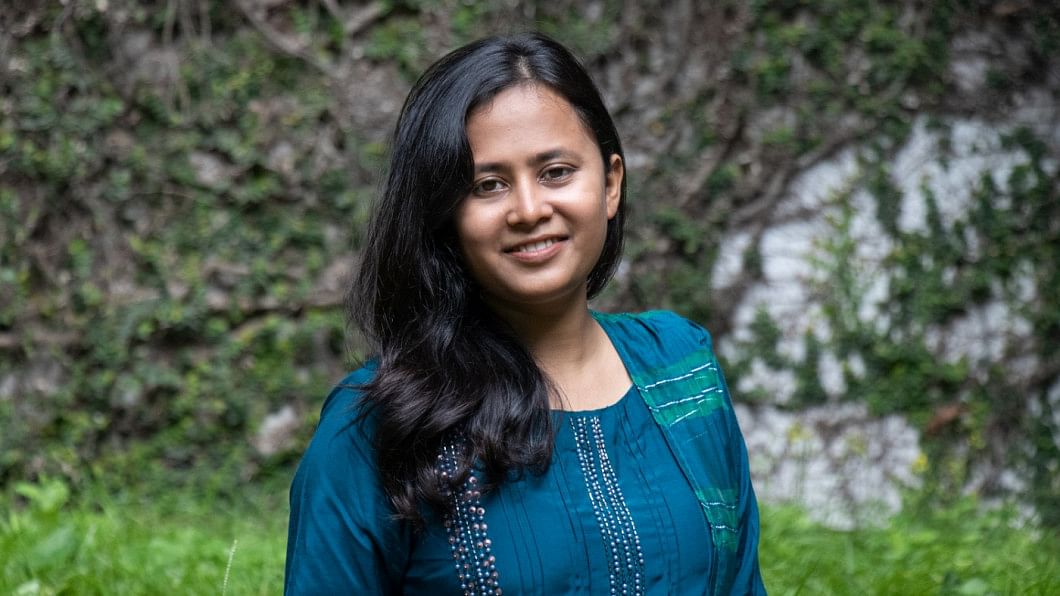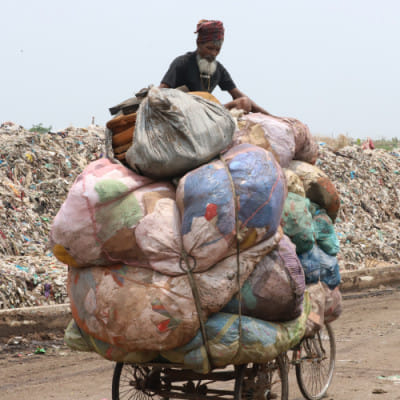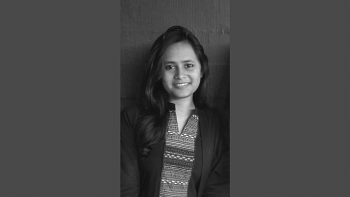Meet the first Bangladeshi Winner of the Global Undergrad Awards

On September 16, Bangladesh University of Engineering Technology (BUET) student Zareen Tasneem Sharif became the first Bangladeshi to win the Global Award in the category of Architecture and Design in the Global Undergraduate Awards 2022. SHOUT sat down with Zareen to hear about her life, her experiences, and her reaction to winning the award through her undergraduate thesis.
Since when did you dream of becoming an architect and why?
Zareen Tasneem Sharif: I wanted to be an architect for as long as I can remember. As a kid, I obviously didn't know what it truly implies. As I grew up, I became acquainted with some of the prominent projects by architects like Kashef Mahboob Chowdhury sir and Marina Tabassum ma'am. Their work truly inspired me. My entire perspective on architecture changed, and I realised isn't just about designing buildings but it is much more than that – it is about the space, the land, the people, the system you work with and how you integrate it all together. That is what made me decide that architecture was what I wanted to study in the future, and I am very grateful that I got the opportunity to pursue my education in the field at BUET.
Tell us a little bit about your time in BUET.
Zareen: BUET is known to be the "land of living". Now that it is over, I can positively say it was an amazing experience for me. BUET Architecture community is a very close-knit one, thus, throughout my undergraduate years, I was able to interact with a lot of talented people here. In our department, some seniors are assigned to guide us in the beginning of our undergrad journey, and we lovingly call them "Amla" and on the other hand, we get some juniors to guide and work with, called "Kamla". I had a really amazing bunch of people as both my "Amla and "Kamla". I thoroughly enjoyed the projects I used to work on and participating in different competitions.
I can honestly say a lot of good things about BUET, but my top pick would be the creative space you get here. The students here are always engaged. We have a variety of clubs here and it's great to see how socially and culturally aware we are here. Secondly, BUET opens doors of opportunities for you where you can showcase your talent and work. Lastly, the friends I have made are very precious to me. Had it not been for the support and love, I got here, it would have been extremely tough for me.
What was your thesis about? How did you become interested in this particular topic?
Zareen: My thesis was titled, "Waste in the City: Agglomerating Local Economy of Matuail Landfill".
Around my fifth year, I found out that we had two landfills at Aminbazar and Matuail in Dhaka. I went to both of the sites personally. When I saw the condition of Matuail for myself, I started to consider what I could do here as an architect, since Matuail landfill has severe environmental and social impacts.
While conducting background research about Matuail landfill, I found out that before it was made to be a landfill in 1992 under the Environment Improvement program, it was an agricultural low land and people there were self-sustained. However, after the landfill started contaminating the agricultural land, people had to resort to earning a waste-based livelihood. Therefore, on one hand, I had the story of these people and on the other, I had to find a suitable way to treat the waste. Thus came the idea of trying to create a symbiosis out of the two.
I was very emotionally invested in this because I wanted to do something for the people there, showing their history and how smartly they derived economic value from their situation. So I poured my all into this.
How did the people in the area respond to questions?
Zareen: They were very responsive to my queries. I was fascinated to see that even without formal education, they created an informal recycling system of their own. And they showed me their ways which helped me in my research.

What made you submit your thesis paper for the Global Undergraduate Awards? How did you find out you had won the Global award? What was your initial reaction?
Zareen: I went through the submissions of the previous years and I came to the conclusion that the submissions were socially responsible. This piqued my interest, and made me submit my work and see where it goes because I really wanted to tell the story of the marginalised people of Matuail to the world.
I was outside when I got the call. And it took me some time to process the news. Honestly, I am still overwhelmed by it. I am mostly excited about attending the UA Global Summit at Dublin, Ireland and representing my country there.
What were some of the obstacles you faced and how did you overcome them?
Zareen: I think, women in STEM and in general, face a lot of obstacles in our society. I, too, have faced such challenges but I truly believe that things are now changing for the better. And this change can only be brought about by all of our efforts.
However, I have been fortunate to receive unconditional support. The biggest support system of my life is my mother, who is a Physics graduate herself. All my life I have seen her juggle work and home, while also being an excellent mother and role model to my sister and me. As a matter of fact, my family and all my supervisors, teachers and friends at BUET have been immensely supportive.
My supervisors were incredibly helpful and patiently guided me throughout the eight months of my thesis. They even mapped out the whole project for me since urban planning is an extensive subject in itself.
What is your biggest takeaway from this experience?
Zareen: I actually relayed the story I wanted to tell people through my thesis, and I think that is my biggest takeaway. It is important to work on local issues and give people a voice so that someone out there could find a way to solve them.
What do you want to do for Bangladesh now?
Zareen: My priority now would be to turn my dream project into reality. I hope I can collaborate with the authority to take steps to materialise my idea for the betterment of the people here.
As the first Bangladeshi to win this prestigious award, would you like to pass on any message for future aspirants?
Zareen: Work hard and put in the effort to showcase the issues around you, ones you know about, and help communicate these stories to others. Think about the issues surrounding you and try to see if you can come up with your own solution to it. The Global Undergraduate Awards is a free platform and the submission procedure is fairly easy. There are also many other awards such as this, through which you can showcase your projects to a broader audience.


 For all latest news, follow The Daily Star's Google News channel.
For all latest news, follow The Daily Star's Google News channel. 







Comments